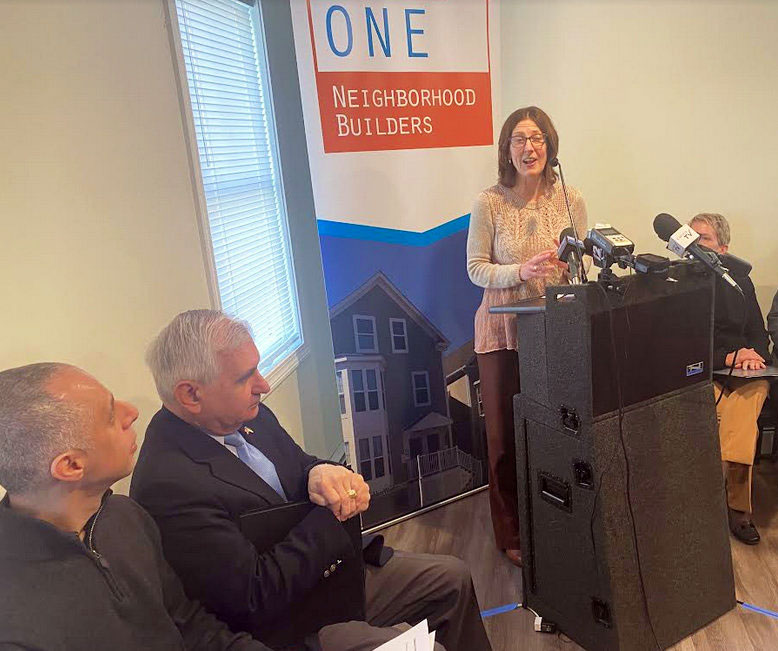
INNOVATION ECOSYSTEM/OPINION
By Richard Asinof
ConvergenceRI
Editor’s Note: On Monday morning, March 28, ONE Neighborhood Builders held a gathering to celebrate a ribbon-cutting ceremony for two new affordable housing projects – nine apartments located in three buildings on Delaine Street and eight modular apartments at Bowdoin Rowhouses.
The ribbon cutting had been planned to be outdoors, but a record-breaking cold snap had made that impossible. At the last moment, ONE Neighborhood Builders had to improvise, moving the gathering inside, to what became a crowded second-floor of a three-bedroom apartment at 153 Delaine St.
Accessibility these days is always an issue for ConvergenceRI, and given the last-minute change in venue, Jennifer Hawkins, the executive director of ONE Neighborhood Builders, reached out to ConvergenceRI, saying: “Hi Richard, due to the cold and wind, we have decided to move the event indoors. This is far from ideal for reasons of accessibility – but it was either that or frostbite. I very much hope you can still join us.”
For all the talk – and posturing by elected officials – about the importance of “affordable housing,” the gathering on Delaine Street, with a subsequent short walk to inspect the ongoing work at the Bowdoin project, had a different feel to it. It was about people who are walking the walk. CONTINUE READING
…
Comments from Jennifer Hawkins on March 28, 2022:
PROVIDENCE – It’s wonderful that affordable housing is now on the top of everyone’s mind. Everyone wants to know how we can produce more housing to meet the skyrocketing demand. And many are asking how we can build the capacity of the sector – from contractors to underwriters – to meet the influx of federal funding.
I’d like to offer a couple of thoughts. First, there is not a worse environment to get hard work done than in a cycle of peaks and troughs.
Consistent funding for housing production allows developers to create a strong housing pipeline. It also encourages construction companies and architects to expand their workforce. We all want to produce a lot of housing – but buying and permitting land that allows for building at reasonable density is not easy or cheap.
Without confidence that there will be financing at the end of the line, it’s challenging to take the first step – for private companies and nonprofits alike.
The state must increase not only the portion of ARPA [American Rescue Plan Act] funding going towards housing development – Homes RI has recommended $500 million – but also increase the annual contribution to the newly created Housing Production Fund.
Rhode Island needs to be making consistent investment that is in line with the level of needs – in all years – so we don’t end up back where we are now.


